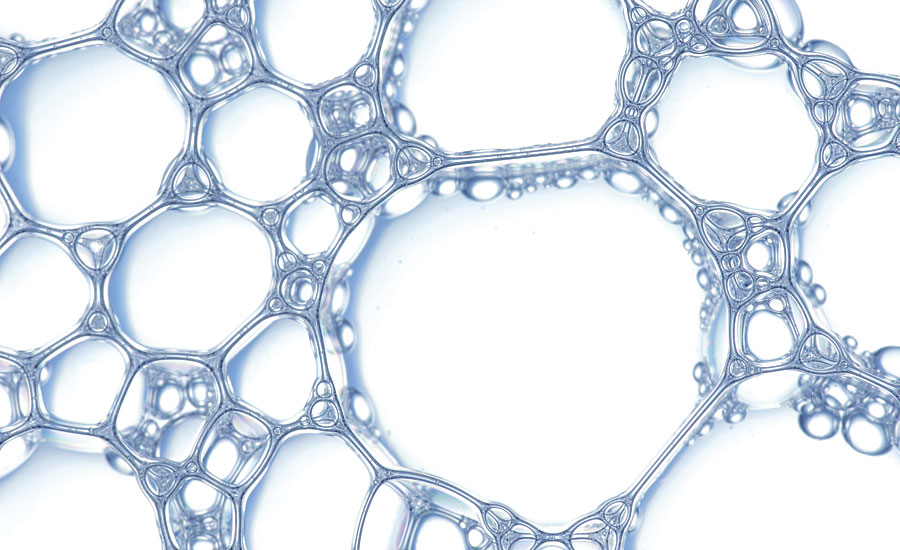Benefits of Using Defoamers to Enhance Operational Efficiency
Benefits of Using Defoamers to Enhance Operational Efficiency
Blog Article
The Function of Defoamers in Enhancing Product Top Quality and Performance
In numerous making procedures, the existence of foam can dramatically impede item high quality and operational efficiency. Defoamers act as crucial ingredients that alleviate this problem, making sure smoother production workflows while boosting the useful and visual features of the end products (defoamers). Their application extends a multitude of industries, from food and beverage to drugs, where consistency and dependability are extremely important. Nevertheless, the choice of the ideal defoamer can be crucial to achieving ideal outcomes, elevating important inquiries about solution compatibility and performance metrics that merit further expedition.
Recognizing Defoamers
Recognizing the duty of defoamers is vital for maintaining item quality across numerous markets. Defoamers are chemical additives designed to minimize and protect against the formation of foam in liquid systems, which can negatively affect processes such as mixing, filling up, and surface area stress. Foaming can cause inadequacies, product flaws, and endangered aesthetic charm, making defoamers a vital element in producing operations.
In industrial applications, defoamers assist to boost item consistency and stability. As an example, in the paint and finishes sector, foam can disrupt the application process and the last surface. In food and beverage production, too much foam can prevent bottling and product packaging efficiency. The reliable use of defoamers not only guarantees smoother production processes but also contributes to premium product performance.
Furthermore, the selection and solution of a defoamer must straighten with specific application demands, such as compatibility with various other ingredients, effectiveness under differing temperature level and pH problems, and potential governing restraints. Ultimately, comprehending defoamers' features and their value in different solutions is essential for optimizing manufacturing and making certain the finest final product.
Kinds Of Defoamers
Defoamers can be categorized right into numerous kinds based on their structure and system of activity. The key kinds consist of silicone-based, non-silicone organic, and not natural defoamers.
Silicone-based defoamers are amongst one of the most efficient, largely as a result of their ability to spread swiftly on the fluid surface area and interfere with foam formation. Their distinct chemical framework permits for superior stability, making them appropriate for high-temperature applications and atmospheres with varying pH levels.
Non-silicone natural defoamers, commonly made up of natural oils or fatty acids, are valued for their biodegradability and lower poisoning. These are usually used in food and beverage applications where security and ecological influence are extremely important.
Inorganic defoamers, that include materials like talc or calcium carbonate, act by boosting the density of the fluid, therefore decreasing foam stability. They are often made use of in commercial procedures where compatibility with various other materials is not a problem.
Each sort of defoamer has distinct advantages and constraints, enabling customized remedies depending on the specific lathering concerns run into in various applications. Comprehending these distinctions is vital for maximizing performance and achieving desired product top quality.
Applications Throughout Industries
Many markets leverage defoamers to enhance item quality and functional efficiency. In the food and beverage market, defoamers are vital in processes such as developing and dairy products manufacturing to protect against foam formation, which can result in ineffectiveness and item variance. By controlling foam, manufacturers can ensure far better yield and an extra uniform product.
In the pharmaceutical industry, defoamers play an essential role in the formulation of liquid drugs, where too much foam can restrain blending and accurate application. Their usage aids keep the stability of the formulas and promotes smoother manufacturing procedures.
The paint and coverings industry likewise counts on defoamers to enhance the performance of products during click for source application. By decreasing foam, these ingredients ensure a smoother finish and enhance the visual high qualities of the end product.

Benefits of Using Defoamers
While the application of defoamers differs throughout industries, their advantages regularly boost product high quality and procedure performance. One considerable advantage is the reduction of foam development during manufacturing processes, which can or else result in manufacturing delays and disparities in item high quality. By lessening foam, defoamers allow a smoother flow of materials, assisting in more reliable procedures and decreasing the likelihood of tools breakdowns.
In addition, the use of defoamers can enhance the appearance and appearance of final items. In sectors such as coatings, paints, and food handling, extreme foam can compromise the aesthetic aesthetics and overall quality, while the suitable defoamer application guarantees an uniform finish and preferable qualities. Defoamers can add to set you back financial savings by decreasing waste throughout production and enhancing the usage of raw products.

Selecting the Right Defoamer
Picking the best defoamer is crucial for optimizing production procedures and ensuring product high quality. The selection of defoamer affects not just the efficiency of foam control yet additionally the total performance characteristics of the last item. Factors to take into consideration consist of the kind of application, the chemistry of the solution, and the ecological conditions under which the product will be made use of.
Different markets may require certain defoamer types, such as silicone-based, natural, or polymeric defoamers. Understanding the compatibility visit this page of the defoamer with the key ingredients is crucial to stay clear of damaging reactions that can endanger product honesty. Additionally, the defoamer's efficiency in various temperature levels and pH degrees need to be examined to ensure constant performance.
Checking the defoamer in small applications can provide useful understandings right into its efficiency and suitability. Consideration of regulatory compliance, particularly in food, pharmaceuticals, and cosmetics, is vital in selecting a defoamer. Ultimately, a comprehensive analysis of these variables will bring about he has a good point the option of a defoamer that not only regulates foam successfully but likewise enhances the top quality and efficiency of the end product.
Verdict

In final thought, defoamers are important additives that dramatically improve product top quality and performance throughout numerous markets. The calculated selection and application of defoamers lead to cost savings, optimized resource usage, and raised client fulfillment.
Foaming can lead to inefficiencies, product flaws, and compromised aesthetic allure, making defoamers a critical part in making procedures.

Report this page